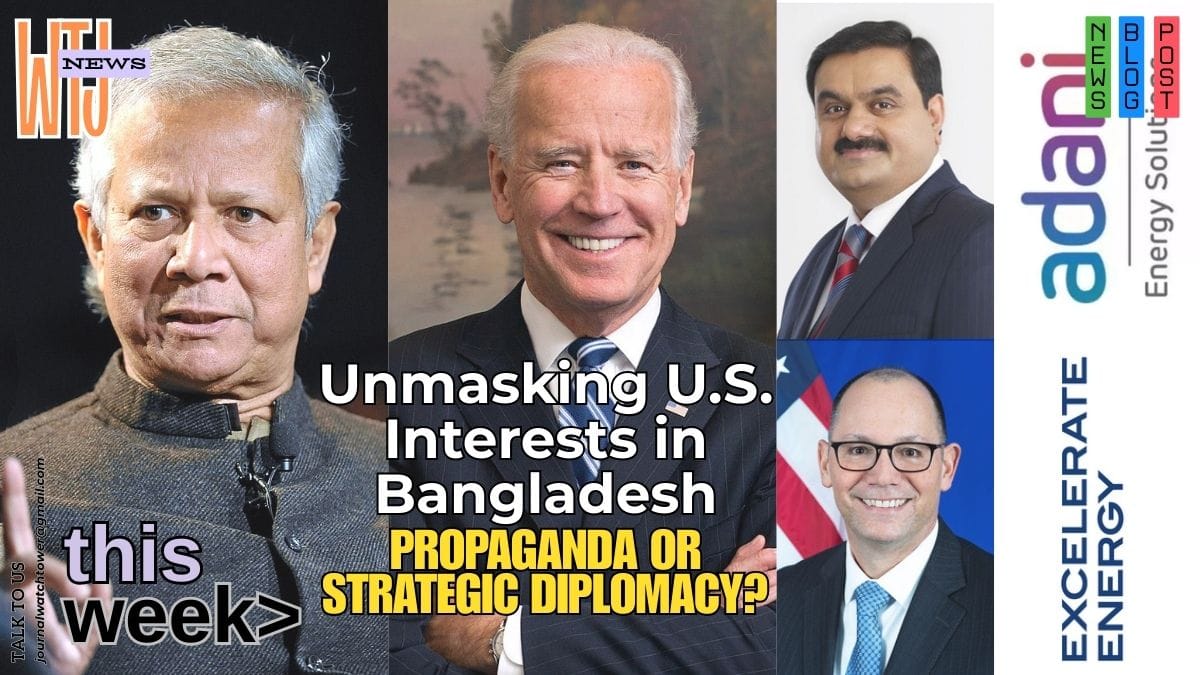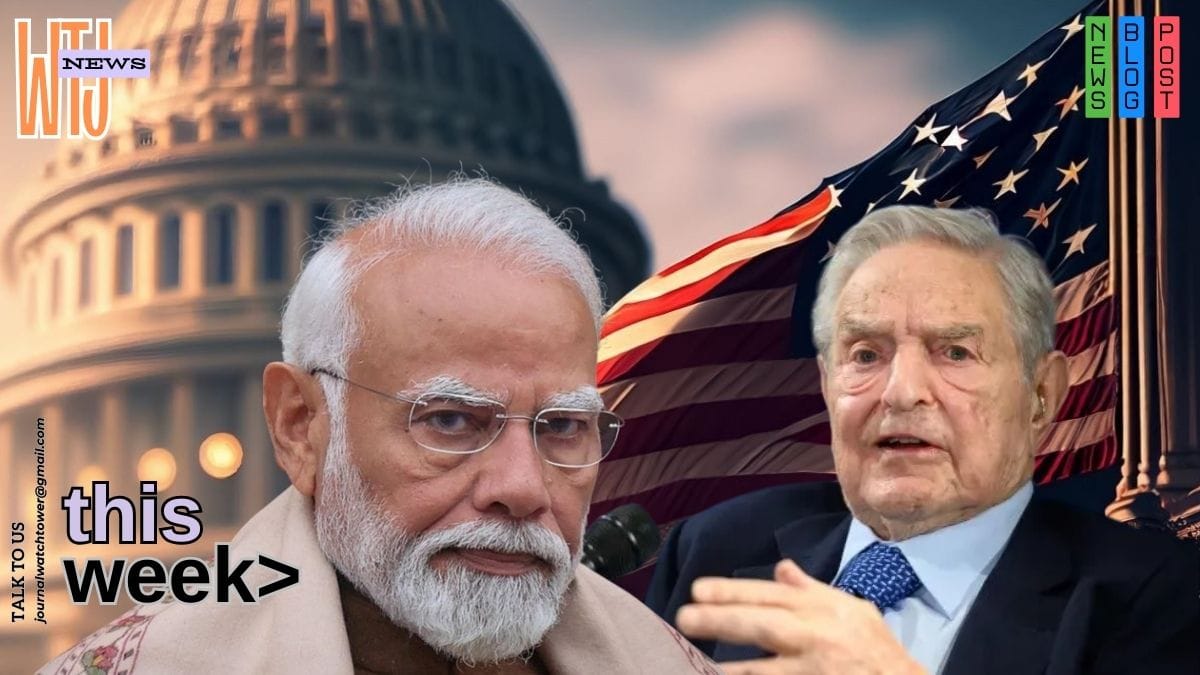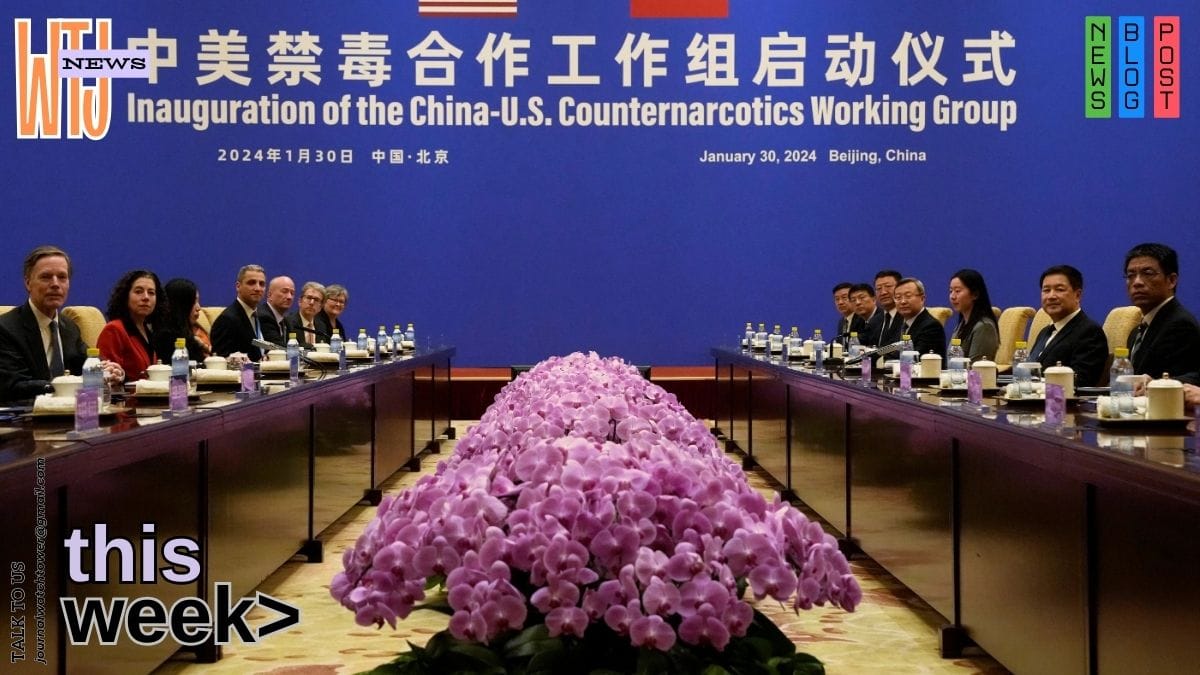In recent years, Bangladesh, a rising South Asian power, has found itself at the center of a strategic tug-of-war between global and regional players. Its geographic location, burgeoning economy, and energy resources make it a focal point for geopolitical interests. Within this backdrop, the role of the United States has raised significant questions. A series of events, including the tenure of U.S. Ambassador Peter D. Haas, the involvement of American energy corporation Excelerate Energy, and the influence of Nobel laureate Muhammad Yunus, have sparked speculation about the Biden administration’s broader agenda.
Is this a case of strategic diplomacy intertwined with corporate interests, or does it reflect a calculated propaganda campaign? This comprehensive report examines these dynamics, connecting dots between political developments, energy policies, and corporate lobbying.
The Geopolitical Chessboard
Bangladesh holds strategic importance due to its proximity to India, China, and the Bay of Bengal. Its growing economy and natural gas reserves have attracted investments from global players, while its position along vital maritime routes heightens its geopolitical value.
U.S. Focus on Bangladesh
Under the Biden administration, the U.S. has shown renewed interest in South Asia, promoting democracy, governance, and economic engagement as counterweights to China’s Belt and Road Initiative (BRI). Bangladesh, a key player in the region, finds itself navigating these influences amidst its internal challenges.
- Energy and Infrastructure: The energy sector in Bangladesh has become a critical battleground. Projects like the Bangladesh-India gas pipeline and LNG terminals have drawn competing interests from Indian conglomerates like Adani and American firms like Excelerate Energy.
- Strategic Counterbalance: The U.S. aims to counter China’s growing footprint in Bangladesh, which has included significant investments in infrastructure and energy projects.
Peter D. Haas: Diplomacy Meets Corporate Strategy
Ambassadorial Tenure
Peter D. Haas, appointed as the U.S. Ambassador to Bangladesh in 2022, carried the dual mission of strengthening bilateral relations and advancing U.S. economic interests. His tenure coincided with significant developments in Bangladesh’s energy policies, raising questions about potential conflicts of interest.
Transition to Excelerate Energy
Speculation surrounding Haas’s post-ambassadorial role adds a layer of intrigue. Reports suggest that shortly after completing his term, Haas joined Excelerate Energy as an advisor. This move, if confirmed, highlights the revolving door between diplomacy and private-sector interests—a practice often criticized for ethical concerns.
Energy Sector Dynamics: Adani vs. Excelerate Energy
The competition between Indian giant Adani Group and U.S.-based Excelerate Energy underscores the high stakes in Bangladesh’s energy market.
Adani’s Dominance
Adani Group has secured substantial projects in Bangladesh, including power plants and energy infrastructure. Its dominance has been a significant barrier to other players, including Excelerate Energy.
Excelerate Energy’s Persistent Efforts
Excelerate Energy, an American LNG company, has faced challenges entering the Bangladeshi market. However, recent developments suggest a breakthrough:
- Meeting with Muhammad Yunus: In October 2023, Excelerate CEO Steven Kobos met with Nobel laureate Muhammad Yunus. Shortly afterward, Excelerate announced plans for increased investment in Bangladesh’s energy sector.
- Pipeline Project Cancellation: Following visits by Excelerate delegates to Petrobangla, reports emerged of the Bangladesh-India gas pipeline project being shelved. While officials cited logistical and economic reasons, the timing raises suspicions of external lobbying.
The Yunus Factor: Bridging Diplomacy and Corporate Interests
Muhammad Yunus’s Role
Nobel Peace Prize winner Muhammad Yunus is a polarizing figure in Bangladesh. Revered globally for his work with microfinance, Yunus has been a vocal critic of Bangladesh’s government under Sheikh Hasina. His involvement with Excelerate Energy raises questions about his alignment with U.S. interests.
- Meeting with Excelerate Leadership: Yunus’s meeting with Excelerate’s CEO signals his potential role as an intermediary for U.S. corporate ambitions.
- Criticism of Domestic Policies: Yunus’s strained relationship with Sheikh Hasina’s government has fueled speculation about his motivations.
Bangladesh’s Shifting Energy Policies
From India to the U.S.?
The cancellation of the Bangladesh-India gas pipeline project has been a significant development. While attributed to technical and financial concerns, the decision coincided with Excelerate Energy’s renewed interest in the market.
Energy Diplomacy as a Tool
For the U.S., energy diplomacy offers a means to exert influence in South Asia. By supporting American firms like Excelerate Energy, the Biden administration seeks to challenge regional competitors while advancing its economic interests.
Propaganda or Pragmatism?
The Case for Propaganda
Critics argue that the Biden administration’s actions in Bangladesh reflect a coordinated propaganda campaign. The sequence of events, from Haas’s tenure to corporate lobbying, suggests a deliberate effort to sway Bangladesh’s policies in favor of U.S. interests.
Counterarguments
Defenders of U.S. engagement emphasize the legitimacy of promoting democracy, governance, and economic development. They argue that corporate involvement is a natural extension of bilateral relations.
Ethical and Strategic Implications
Ethical Concerns
The alleged transition of Peter D. Haas to a corporate role highlights the ethical challenges of the revolving door between diplomacy and private-sector lobbying. Such practices risk undermining trust in diplomatic institutions.
Strategic Consequences
For Bangladesh, balancing external pressures with domestic priorities remains critical. The interplay between U.S. and Indian interests complicates its energy policies and governance.
A High-Stakes Game
Bangladesh’s energy landscape serves as a microcosm of larger geopolitical dynamics in South Asia. The involvement of U.S. diplomacy, corporate lobbying, and regional competitors reflects the complexity of modern statecraft.
The Biden administration’s actions, whether pragmatic or propagandistic, underscore the strategic importance of Bangladesh. As the nation navigates these challenges, it must safeguard its sovereignty and prioritize long-term energy security.
Ultimately, this evolving story raises questions about the ethical boundaries of diplomacy and the role of corporate influence in shaping global politics. For observers, the coming years will reveal whether these developments signify progress, propaganda, or a deeper geopolitical game.




